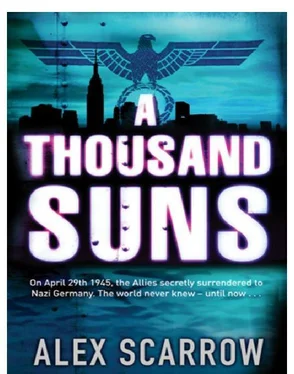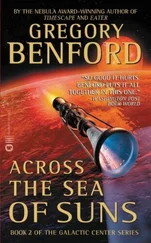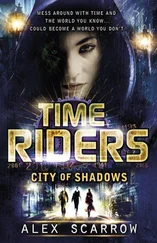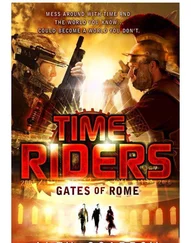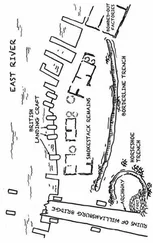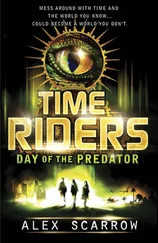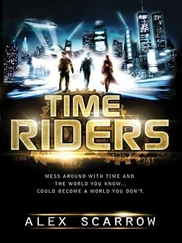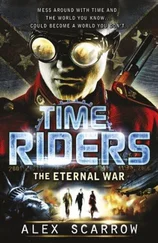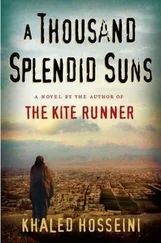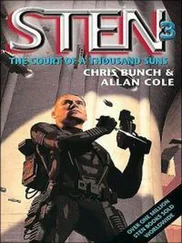Alex Scarrow - A thousand suns
Здесь есть возможность читать онлайн «Alex Scarrow - A thousand suns» весь текст электронной книги совершенно бесплатно (целиком полную версию без сокращений). В некоторых случаях можно слушать аудио, скачать через торрент в формате fb2 и присутствует краткое содержание. Жанр: Триллер, на английском языке. Описание произведения, (предисловие) а так же отзывы посетителей доступны на портале библиотеки ЛибКат.
- Название:A thousand suns
- Автор:
- Жанр:
- Год:неизвестен
- ISBN:нет данных
- Рейтинг книги:4 / 5. Голосов: 1
-
Избранное:Добавить в избранное
- Отзывы:
-
Ваша оценка:
- 80
- 1
- 2
- 3
- 4
- 5
A thousand suns: краткое содержание, описание и аннотация
Предлагаем к чтению аннотацию, описание, краткое содержание или предисловие (зависит от того, что написал сам автор книги «A thousand suns»). Если вы не нашли необходимую информацию о книге — напишите в комментариях, мы постараемся отыскать её.
A thousand suns — читать онлайн бесплатно полную книгу (весь текст) целиком
Ниже представлен текст книги, разбитый по страницам. Система сохранения места последней прочитанной страницы, позволяет с удобством читать онлайн бесплатно книгу «A thousand suns», без необходимости каждый раз заново искать на чём Вы остановились. Поставьте закладку, и сможете в любой момент перейти на страницу, на которой закончили чтение.
Интервал:
Закладка:
On this side of the Atlantic, there was even less that they could do to prevent it happening, if they were indeed to be the target. There were no anti-aircraft defences along the east coast, and only a few symbolically placed around the White House. There were one or two placed on the rooftops of the tallest buildings around Times Square, more for show than anything else. There was no radar matrix established that could pinpoint any intrusion of airspace approaching America, as was the case for the south coast of England. It seemed obvious now, thought Wallace, why the Germans would pick America as the target for a weapon like this. Separated from the war by thousands of miles of water, the country had allowed itself to become a soft target.
The orders had been sent, but Wallace felt this was no more than a little feel-good medicine for Truman.
Since the despatching of these orders, Truman had used the time to go over once again the validity of the atomic threat. Wallace’s scientific contribution was closely questioned, while a senior member of Oppenheimer’s team, currently in Washington to prepare a detailed brief of the Manhattan Project for the new President, had been hauled out of bed in a nearby hotel and driven to the White House. The poor man, Dr Frewer, had been hastily fed a breakfast roll and given a black coffee to wake him up. Once he had been roused and brought up to date on events, he, too, had scoffed at the idea that the Germans were capable of making such a bomb and had been dismissive of the fast-cycle emission theory, calling it ‘hokum science’ at best.
Truman had questioned the man himself and, like Wallace, Frewer could only offer the assurance that the theory was extremely unlikely to work. He too had refused to say impossible, though.
That had seemed to have a profound effect on the President.
The sun had been up for some hours over DC and flooded into the conference room as the meeting reached a natural break, and Truman allowed them all a chance to step away from the table and visit the staff canteen for a late breakfast. He wanted them all back for half past eleven.
Wallace chose to freshen up and visited the washroom down the hall. He rinsed his face with cold water and stared wearily back at the young man in the mirror, as water dripped from the tip of his hawk-like nose.
He wiped his face dry. Right now, he’d rather return to the secure, comfortable and predictable routine he had been enjoying at Stanford only six short months ago and be blissfully unaware of the chaos here in the White House.
He did up his collar button, picked up his tie and made a quick job of a tidy bow. With a lick of his hand he smoothed down a tuft of hair on his crown and left the washroom, heading up the hallway to the conference room, feeling a little better.
He passed an ornate clock on a walnut side table and it chimed the quarter hour past eleven noisily.
Hitler’s deadline was now only a few hours away.
Despite remaining unconvinced that the Germans had the bomb, he was beginning to feel uneasy about the approaching deadline for the demonstration. They had exhausted so much valuable time discussing the possibility of an atom bomb that he felt a nagging concern that other possible forms of attack had been inadequately reviewed. Granted they had that garbled message from some alleged technician that the Germans had managed to produce something and move it before it could fall into American hands. Of course, that could easily have been staged for their benefit, to underpin the bluff, a simple attempt at throwing them a curve ball.
But then there had been the exchange this morning between some of their Air Force boys and a Luftwaffe squadron of fighters escorting a B-17.
A B-17… that was worrying. A flying fortress was the only plane the Germans might conceivably have got their hands on that had the range to cross the Atlantic. They had no planes of their own with that kind of range, not even their Fokker-Wulf Condor.
He found himself wondering whether that, too, was a part of the bluff. To fly right across French airspace, with every chance they might be discovered, rather than some more discreet route, for example from Norway, across Iceland and down to the US.
Maybe they’d wanted to be discovered?
The more he thought it through, the more it seemed that an atom bomb delivered by plane across the Atlantic was hokum, a theatrical and dramatic bluff, the sort of stunt he could imagine a madman like Hitler would want to pull off. Perhaps it was more than a bluff? Perhaps it was a decoy, to distract their attention from the real threat, whatever that was. Flying openly across French airspace…?
It was a goddamn bluff.
Wallace had talked quietly with Dr Frewer about the infinite chain reaction theory while both of them had taken an opportunity to smoke a cigarette in an alcove just outside the conference room. Frewer had said the same as he had in the room, that the possibility of the fast-cycle theory working was minuscule.
And yet there seemed to be some circumstantial evidence building up. Of what, he wasn’t sure. But he could understand Truman’s growing belief that the atom bomb threat was real. The President didn’t understand the science and had the recently assigned responsibility of the office weighing heavily on his shoulders. He was being cautious, waiting as long as he dared before making a decision.
Just a few hours to go.
All of a sudden, Wallace heard the pounding of feet on the thick carpet of the hallway behind him. He turned to see a man in uniform run past him and up the hall to the conference room. He was let in immediately by the marines in dress uniform guarding the double doors.
Jesus Christ, what now?
Wallace quickened his pace up the hall and nodded to the marines, who recognised his face from the several washroom exits he’d made during the morning, and opened the doors for him.
Truman was being handed a slip of paper. He pulled up his glasses to read it as the other men in the room quickly quietened down and studied their President’s face for a flicker of reaction.
Truman looked up at them, reading aloud what he’d just digested silently.
‘At one o’clock this morning Eastern Standard Time, a small force of German soldiers attacked and captured one of our supply airfields on the west coast of France. The airfield was taken, some planes landed. A squadron of twelve German fighters… and a B-17.’
Truman looked up at them. These must be the same planes that had been encountered hours earlier.
‘They refuelled and left before the airfield could be recaptured. Nine of the German fighters were disabled on the ground, and the B-17 was seen to have taken some damage. The planes headed west, out to sea.’
He placed the slip of paper on the table. ‘That happened several hours ago, gentlemen. Assuming this plane is heading our way, does anyone know how long it takes for a B-17 to cross the Atlantic?’
There was an extended silence. Wallace spotted a junior officer quietly whispering into the ear of General Arnold.
Arnold cleared his throat and leaned forward. ‘The B-17 has a cruise speed of between two to three hundred miles per hour, Mr President, and the distance across is about four thousand miles, so that would make a journey time of…’
Wallace watched as several of the committee closed their eyes in concentration to do the maths.
‘Anywhere between thirteen to twenty hours, sir,’ said Wallace quickly.
Truman looked at Wallace. ‘Then it appears that we may have very little time left.’
The President looked down at the conference table, his fingers drummed on its mahogany surface, and the chiefs and the cabinet looked on in silence as Truman deliberated for a full minute before deciding to voice his thoughts aloud.
Читать дальшеИнтервал:
Закладка:
Похожие книги на «A thousand suns»
Представляем Вашему вниманию похожие книги на «A thousand suns» списком для выбора. Мы отобрали схожую по названию и смыслу литературу в надежде предоставить читателям больше вариантов отыскать новые, интересные, ещё непрочитанные произведения.
Обсуждение, отзывы о книге «A thousand suns» и просто собственные мнения читателей. Оставьте ваши комментарии, напишите, что Вы думаете о произведении, его смысле или главных героях. Укажите что конкретно понравилось, а что нет, и почему Вы так считаете.
